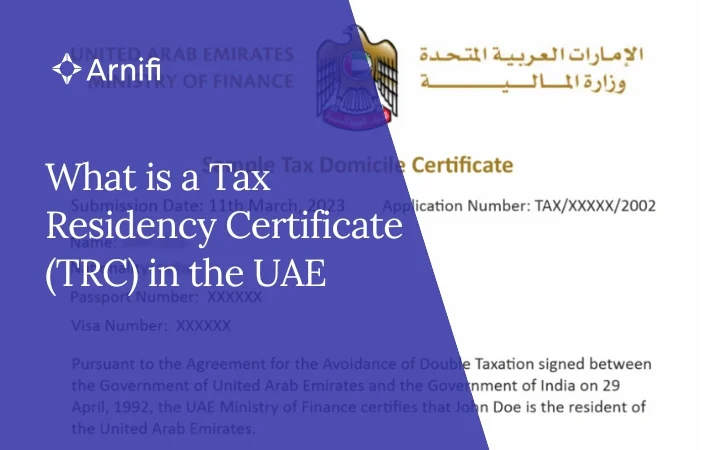UAE Corporate Tax: The Need for Business Documentation
by Shethana Aug 21, 2024  7 MIN READ
7 MIN READ

The UAE’s corporate tax regime starts on June 1, 2023. This is a big change in the country’s tax policy. It is a federal tax that affects all businesses and commercial activities. This change will impact their financial strategies and obligations.
One important part of the new law is the need for clear and accurate business documents. This move towards detailed record-keeping is crucial. Businesses must show they follow the new tax regulations and support their tax filings.
Key Features of the UAE Corporate Tax System
The UAE corporate tax system is designed to stay competitive worldwide while being fair and clear. The corporate tax rate is 9% on taxable income. This income is based on the company’s financial statements, which should follow global accounting standards.
The Federal Tax Authority (FTA) handles the rules and enforcement of the corporate tax law. Businesses must register with the FTA, file tax returns by set deadlines, and keep accurate records for each tax period, which usually matches the company’s financial year.
The tax system allows for deductions, exemptions, and credits. These can help reduce the total tax paid for businesses that qualify. It is important to understand these options and maintain proper documentation to support claims. This way, businesses can improve their tax situation.
Implications for Businesses Operating in the UAE
The new corporate tax rules in the UAE will impact businesses in many industries. It is important for these businesses to know their tax duties and follow the new laws. They must review their operations, income, and expenses to find out their taxable income and how much tax they might owe.
The corporate tax system in the UAE also has transfer pricing rules. These rules are important for companies that are part of larger global groups. Businesses need to keep good records to prove that their deals with related companies are fair. This helps them avoid penalties and problems with the FTA.
Free zones used to have tax benefits in the UAE, but the new corporate tax changes that. Many businesses in free zones must now meet corporate tax rules, but some might get exemptions or lower rates if they meet certain requirements.
The Importance of Maintaining Accurate Business Records
In the UAE corporate tax system, keeping accurate and complete business records is very important. These records help with tax compliance. They provide the FTA with the information needed to check if a company’s reported taxable income is correct.
Good record-keeping does more than just help with compliance. It also creates transparency and builds trust with people involved in the business. Plus, it helps in making better decisions for the company.
Legal Requirements for Documentation Under UAE Corporate Tax Law
The UAE corporate tax law has rules about keeping records for businesses. It is important to understand these rules and fit them into your business work. This helps you avoid problems and makes dealing with the FTA smoother.
Businesses must keep important records for at least seven years after the tax period ends. This time period lets the FTA check things if needed.
The tax law does not say how to keep records, but it is very important to have documents that can be checked. They should be easy to find when the FTA asks for them, and they should show a clear trail for every transaction.
How Proper Documentation Supports Tax Compliance
Maintaining accurate records is crucial for meeting corporate tax compliance. When businesses keep organized records of their financial transactions, preparing and filing tax returns becomes easier.
Good records provide the needed documents to back up the numbers reported in the tax return. This helps to reduce mistakes and inconsistencies that could lead to an audit. By doing this, businesses save time and resources, which lessens the compliance burden.
If a tax authority has questions, having proper records lets businesses respond quickly and confidently. They can provide proof to support their tax positions and may avoid penalties.
Strategies for Efficient Business Documentation
Managing and organizing business documents is very important for following the new UAE corporate tax regulations. Using standard methods for storing, finding, and keeping documents can help work get done faster and lower work stress.
In addition, using technology to improve document processes can really help businesses over time.
Adopting Digital Solutions for Record-Keeping
In today’s world, businesses can greatly benefit from using digital solutions to make their record-keeping easier. Sticking to manual record-keeping can be less effective. Switching to digital platforms has many perks, like being more efficient, more accurate, and using less storage space.
It is important to have solid accounting systems that can create detailed reports, track invoices, and keep financial data safe. Cloud-based accounting software lets you access financial information from anywhere, making it simpler to manage records and work with tax advisors.
Using electronic invoicing, digital receipts, and online banking also helps capture data easily and lowers the chance of losing paper documents. These digital records can usually be used for tax purposes in the UAE, making compliance much simpler.
Best Practices in Financial Documentation for Tax Purposes
Following good practices for financial documents is very important for smooth tax compliance and effective financial management. Businesses should set up clear ways to record transactions, check bank statements, and keep documentation for all expenses and income.
It is key to regularly look at and update financial statements to keep them accurate and complete. Setting strong controls on financial reporting can help avoid mistakes, stop fraud, and encourage responsibility in the organization.
By keeping detailed records, such as invoices, receipts, bank statements, and contracts, businesses can show clear proof of their transactions. This makes tax compliance easier and reduces potential risks.
Conclusion
Efficient business documentation is very important in the new UAE corporate tax landscape. When businesses keep accurate records and use digital tools, they can meet requirements and make tax processes easier. It is crucial to know legal rules and follow best practices in record-keeping for a smooth switch. Good documentation helps with tax compliance and makes operations more efficient. With effective strategies, businesses can adjust to the changing tax environment and meet regulations. Stay informed, stay organized, and set yourself up for a successful tax journey in the UAE.
Frequently Asked Questions
What constitutes adequate business documentation under the UAE Corporate Tax Law?
Adequate business documentation in UAE corporate tax regulations means having the right documents that show a legal business operation, its income, and expenses. These documents help the FTA check if the reported taxable income is correct and make sure the tax law is followed.
How long must businesses retain their financial records in the UAE?
Businesses in the UAE must keep their financial records, along with all required documents, for a long period of seven years. This starts from the end of the tax period those documents relate to. This significant timeframe helps provide a comprehensive view of financial activities and allows for possible audits.
Are there any exemptions to the UAE Corporate Tax for SMEs?
The UAE’s corporate tax system usually affects all businesses. However, there may be some tax breaks and help for small and medium-sized enterprises (SMEs) that qualify. These benefits might include tax relief on a certain amount of income or on some types of exempt income.
Can digital records be used as official documentation for tax purposes?
Yes, keeping digital records for taxes is allowed in the UAE. The corporate tax system lets businesses store records electronically. This helps the auditing process go smoothly. There is no need for strict formats, as long as the records are correct, can be verified, and are easy to access.
READ MORE: How to Qualify for VAT Exemption in UAE
About Arnifi
Arnifi is digital first Corporate service provider helping companies enter the Middle East region, starting with UAE and Saudi Arabia markets. Founded and backed by professionals from Amazon, Souq and other large companies operating in KSA – the team understands what it takes to succeed as a startup in both UAE and Saudi Arabian markets, apart from going through the setup process multiple times. Arnifi will provide a truly digital experience to entry and scale up of companies both UAE and Saudi Arabia. Discover tailored solutions and strategic partnerships that propel your business forward. Check out at – www.Arnifi.com for more details.
READ MORE: Beginner’s Guide to Excise Tax in UAE
Top UAE Packages

Related Articles
Top UAE Packages



